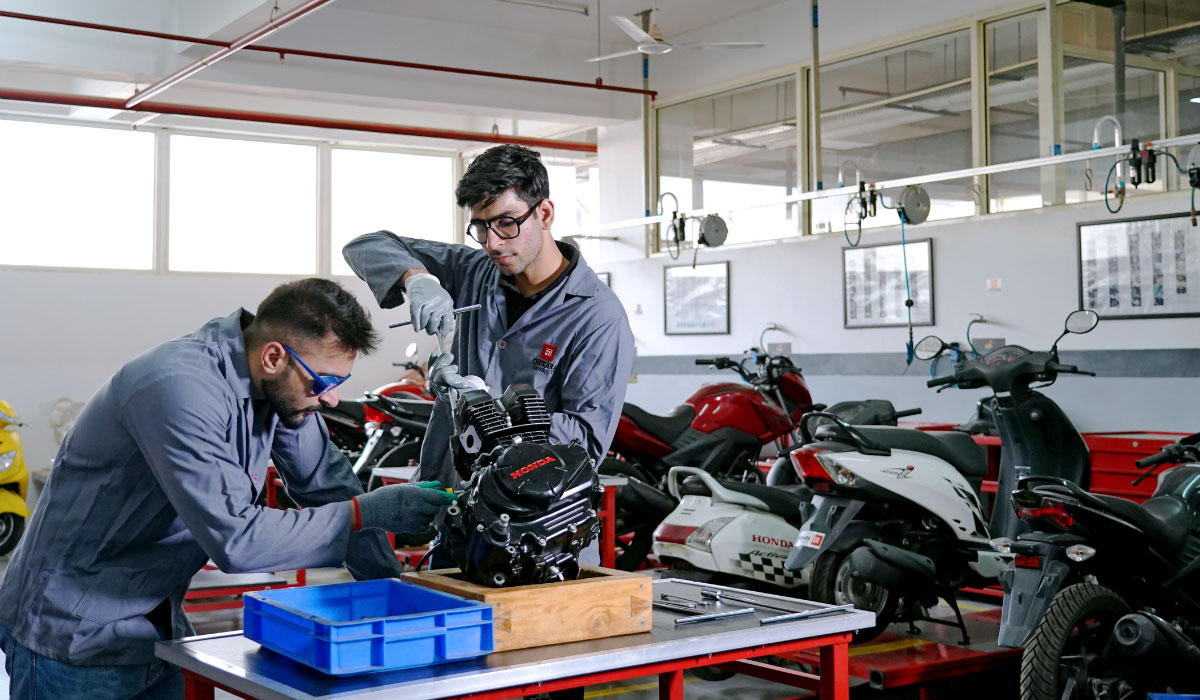Automotive engineering is a field that deals with the design, development, and production of vehicles, such as cars, motorcycles, and trucks. It is a rapidly growing field that offers a wide range of career opportunities for those who have a passion for innovation, problem-solving, and cutting-edge technology.
If you’re considering a career in automotive engineering, here are some reasons why it might be the right choice for you:
Passion for Cars: If you have a deep passion for cars and an interest in how they work, automotive engineering might be the perfect career choice for you. Engineers who are passionate about cars are more likely to enjoy their work and be successful in the industry.
Strong Analytical Skills: Automotive engineering requires strong analytical skills and problem-solving abilities. Engineers must be able to identify and troubleshoot issues in the design and development of vehicles.
Interest in Technology: Automotive engineering is a field that is constantly evolving with new technologies and innovations. If you have an interest in technology and enjoy staying up-to-date with the latest advancements, this could be the perfect career path for you.
Career Opportunities: The automotive industry is one of the largest and most important industries in the world. There are a wide range of career opportunities available in automotive engineering, including research and development, design, testing, manufacturing, and sales.
Automotive engineering is a field that offers a wide range of career opportunities. Here are the top 10 career options after automotive engineering:
Automotive Design Engineer: Automotive design engineers are responsible for designing and developing new vehicle models. They use computer-aided design (CAD) software to create detailed 3D models of vehicles and collaborate with other engineers to ensure that the designs meet all necessary requirements.
Manufacturing Engineer: Manufacturing engineers are responsible for developing and implementing manufacturing processes for automotive components and vehicles. They work with production teams to optimize manufacturing processes and ensure that quality standards are met.
Automotive Test Engineer: Automotive test engineers are responsible for testing and evaluating vehicle performance and safety. They design and conduct tests on vehicles and components to ensure that they meet all necessary safety and performance standards.
Powertrain Engineer: Powertrain engineers are responsible for designing and developing vehicle powertrains, which include the engine, transmission, and drivetrain. They work to optimize powertrain performance and efficiency while meeting emissions and fuel economy standards.
Automotive Electronics Engineer: Automotive electronics engineers are responsible for designing and developing electronic systems and components for vehicles. They work on everything from infotainment systems to advanced safety features like adaptive cruise control and lane departure warning systems.
Quality Engineer: Quality engineers are responsible for ensuring that automotive components and vehicles meet all necessary quality standards. They develop and implement quality control processes and work with production teams to address any quality issues that arise.
Vehicle Dynamics Engineer: Vehicle dynamics engineers are responsible for optimizing vehicle handling, performance, and safety. They use computer simulation software to design and evaluate vehicle suspension, steering, and braking systems.
Project Manager: Project managers oversee the development and production of automotive components and vehicles. They coordinate with engineers and production teams to ensure that projects are completed on time and within budget.
Sales and Marketing: Automotive engineering graduates can also pursue careers in sales and marketing. They can work for automotive manufacturers or suppliers, promoting and selling vehicles or components.
Entrepreneur: Finally, automotive engineering graduates can also consider starting their own businesses. They can develop new automotive technologies, design and build custom vehicles, or start a business selling automotive components or accessories.
If you are interested in pursuing a career in automotive engineering, Chitkara University’s automotive engineering course could be an excellent option for you. The course provides students with a comprehensive understanding of automotive design, manufacturing, and production processes, as well as hands-on experience with cutting-edge technologies and software.
Chitkara University’s automotive engineering course also offers a range of specialized modules, including automotive electronics, powertrain design, and vehicle dynamics. Students will have the opportunity to work on real-world projects and gain practical experience through industry internships.
In addition to its strong academic program, Chitkara University offers a range of extracurricular activities and networking opportunities to help students develop their skills and build professional connections. Graduates of the automotive engineering program at
Chitkara University are well-equipped to succeed in the industry and pursue rewarding careers in automotive engineering.
In conclusion, if you have a passion for cars, strong analytical skills, an interest in technology, and are looking for a rewarding and challenging career path, automotive engineering could be the right choice for you. And if you’re considering pursuing a degree in automotive engineering, Chitkara University’s program offers an excellent opportunity to gain the skills and experience needed to succeed in this exciting field.






